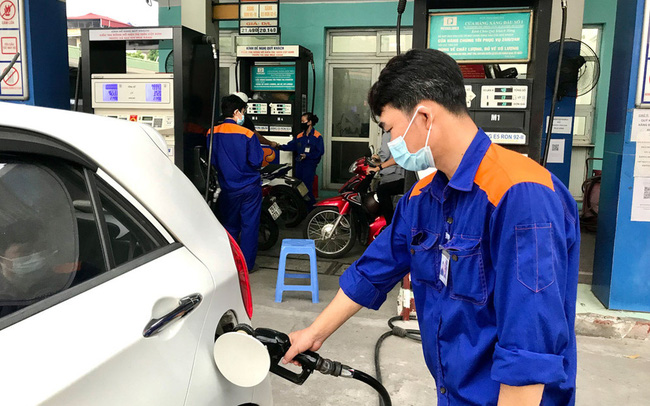Rising petrol prices contribute US$385 million to state budget revenue
The Government is looking at measures to curb the rising trend of petrol prices on the domestic market, which is placing a huge burden on the economy.
Vietnam’s state budget revenue this year is estimated to increase by over VND9.1 trillion (US$385 million) thanks to rising petrol prices.
| A petrol station in Hanoi. File photo |
Vice Minister of Finance (MoF) Nguyen Duc Chi gave the remarks at a Government press briefing on July 4.
Chi, however, noted the increase in revenue was significantly lower compared to the budget decline from the two cuts estimated to be around VND32.5 trillion ($1.4 billion) in environmental protection tax for fuel and petrol products on April 1, and the upcoming August 1.
According to Chi, the MoF has been taking measures to curb the upward trend of petrol prices, which are posing severe impacts on business operations and people’s lives.
Chi suggested the latest cut on environmental protection tax on petrol products, set to take effect from August 1 pending the National Assembly’s approval, would see the state budget forgoing a combined VND7 trillion ($300 million) in both environmental protection and value-added taxes.
In line with such an effort, Chi said the ministry would continue to explore other options in cutting taxes on petrol products, including excise and value-added taxes.
“Decision to cut these types of tax would depend on the price situation of petrol products from now until late 2022, aimed at stabilizing market prices and macro-economic situation,” Chi said.
Prices of petroleum products in the local market remained high despite a decline of VND100-400 per liter in the latest price review of the authorities on July 1. The average prices have so far risen by 65-70% against the end of 2021, in turn putting huge pressure on the economy.
On this issue, Vice Minister of Planning and Investment Tran Quoc Phuong said rising petrol prices are having a domino effect on other strategic commodities.
“Along with a shortage of labor force, the high petrol price products would be a challenge for the Government in price management efforts,” Phuong said.
“Uncertainties surrounding prices of petrol products are a key concern for the Government to keep the consumer price index (CPI) below 4% target,” he added.
Vietnam’s core inflation in June expanded by 0.44% against the previous month and by 1.98% year-on-year. This resulted in the rate of 1.25% year-on-year for the six months, lower than the expansion rate of the CPI at 2.44%.
HSBC in its latest Vietnam report forecast the country’s inflation in 2022 to stay around 3.5%, below the 4% target set by the National Assembly.
| Hanoi’s CPI in June increased by 0.7% against the previous month and up 3.15% compared to late 2021. On average, the CPI grew by 3.25% year-on-year in the six months. Nine out of 11 commodity groups under the CPI baskets witnessed prices high against the previous month, in which transportation took the highest rise by 3.8%, contributing to 0.37% of the overall growth; followed by restaurants and catering services by 1.12%; culture, entertainment and tourism by 2.14%. |













